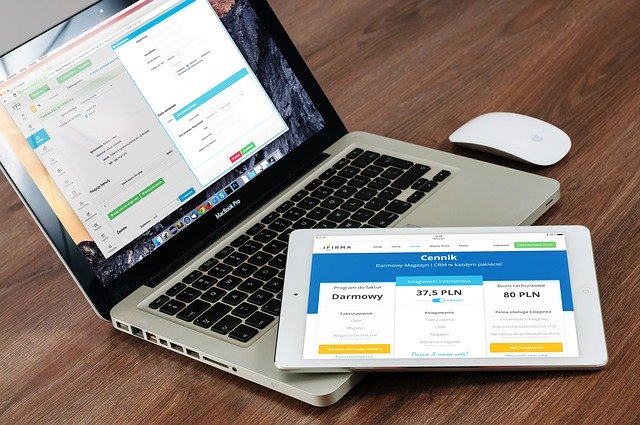Just the thought of creating a budget is enough to make most people anxious. However, a budget can be essential to understanding where your money goes, especially when you are considering applying for a postgraduate degree.
Creating a budget plan does not have to be unbearable. Whether it’s the first time you are giving it a try, or whether you’ve always been crunching the numbers, here are some tips to keep in mind…
What are you Budgeting for?
A postgraduate degree in the UK is usually a two-year experience. This is what should inspire you to create a budget plan. Consider your current situation and work from there.
Have you been overspending, or have you been able to save some money?
What other commitments do you have? Perhaps you have a family to support or loan repayments that you need to keep up with.
It’s easier to commit to a plan and feel good about it if you have a purpose for it.
1. Use Positive Language
The word “budget” can feel rather heavy.
A lot of people feel that it signifies something that is limiting. So, think of another name for your plan that will help you feel more positive and more motivated about it.
For example – the postgraduate adventure, MBA candidate plan, or the 2-year spending plan.
Remember this budget is “enabling” you to do make your aspirations a reality. Adding a timeline to it helps you to see the light at the end of the tunnel so you don’t feel that it’s something that will last forever.
Especially in the case of a postgraduate degree, there is a reward at the end and possibly an increase in salary.
But who knows… maybe you will enjoy following a budget after all and end up continuing it after you graduate!
2. Decide on a Budgeting Method and stick to it
There are countless ways to go about a creating a postgraduate budget.
Do a quick search and read up on them online to find the one that feels right for you. It is important to select the best one for your lifestyle so that you will be able to stick to it.
Some popular methods are the 50/30/20 budget or the cash-based envelope system.
Some people prefer to keep a manual check of their daily expenses. Others opt for an app.
As with everything, the beginning will be challenging. If you feel you’ve given it your best shot and it still isn’t working out for you, try something different.
3. Prioritize your Needs and schedule your Wants
Understanding the difference between needs and wants is for many the key to a happy life!
Focus on the essentials to begin with — things like groceries, rent, utilities and transportation costs.
Then move on to other expenses which are equally important, but perhaps not “essential” for you or your family’s survival. Your financial goals, such as loan repayments or retirement savings, should also receive attention.
The reason you should be tracking your spending is so that you can see over a significant amount of time, where your money is going.
Is there spending taking place that is not necessary? That is perhaps not making your life any easier or happier? Once you become aware of these, then you will be able to address them and see if changes can be made.
The 50/30/20 budget is a good guideline for covering the major spending categories. It suggests using 50% of your income toward needs, 30% toward wants and 20% toward savings and debt.
Your postgraduate student loan repayments should fall into this 20% bracket. Although with some private student loan providers, if you are studying full-time, your repayments may not begin until after you graduate.
If you are planning to study part-time though, it is important to include those repayments in your budget plan. The repayment amounts and dates should be outlined in your postgraduate loan agreement.
4. Leave Room for the Unexpected
Don’t expect your budget to be flawless. Life is full of surprises and some expenses may slip through without you noticing.
Be proactive and take precautions along the way. Have a small amount set aside every month to cover miscellaneous expenses or emergencies.
It is easy to be tempted to use a credit card or a small loan to cover the unexpected, but these are usually expensive solutions. If you want to stay on track with your budget plan and not take on any extra unnecessary debt by the end of your postgraduate degree, make sure you are prepared.
5. How techy are you?
Depending on how comfortable you are with technology, see what solutions could make the management of your budget plan easier for you to manage. For example, setting up an automatic transfer for bills or savings will not only save you time, but will take away the thought process around it so you can avoid the temptation to either spend the money otherwise or delay the transfer.
There are also some very handy mobile apps that you can use to track your daily spending and you should also follow some student finance blogs.
6. Revisit and Update regularly
Think of your budget plan as something living, a work in progress. Changes may happen any day, such as unexpected gifts, car or home repairs or fees. You might even have a change in income one month.
It’s best to review your postgraduate budget plan on a weekly or at least monthly basis in order to see where you stand. This will enable you to handle the ups and downs before they become an issue.
Author Profile

- Shirley Owen is a blogger and writer who enjoys writing blogs on education, technology and general news. An avid reader, she follows all the latest news & developments to report on them through her articles.
Latest entries
 learningDecember 22, 2025When Co-parenting Affects School Performance – Challenges & Solutions
learningDecember 22, 2025When Co-parenting Affects School Performance – Challenges & Solutions educationDecember 11, 2025Making Education Accessible for Mobile Families that Travel
educationDecember 11, 2025Making Education Accessible for Mobile Families that Travel learningOctober 28, 20257 Daily Classroom Strategies Helping Children With Learning Differences Thrive
learningOctober 28, 20257 Daily Classroom Strategies Helping Children With Learning Differences Thrive  educationSeptember 18, 2025A Guide to the European Accessibility Act for Schools and Universities
educationSeptember 18, 2025A Guide to the European Accessibility Act for Schools and Universities







